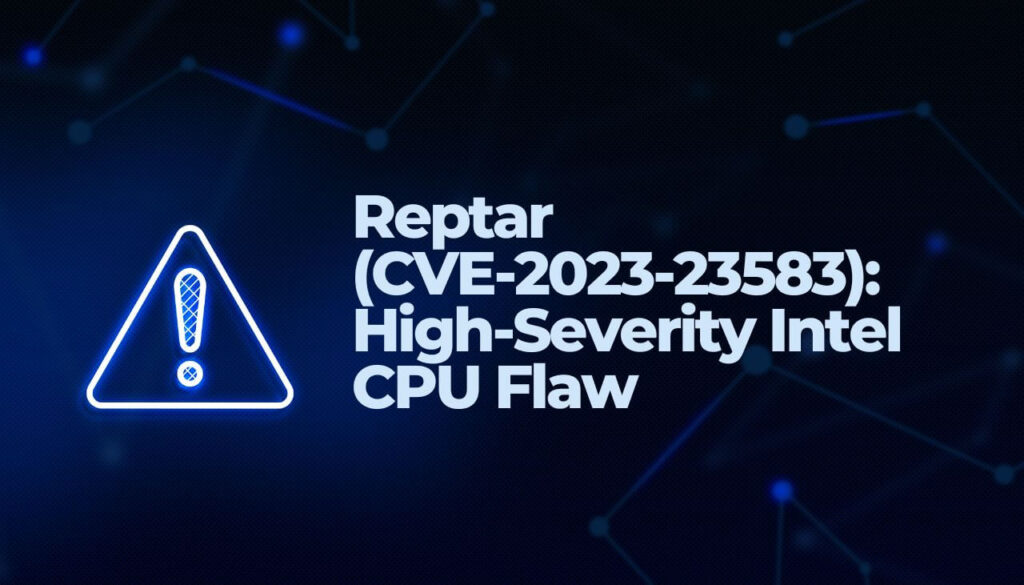Intel has just addressed a high-severity CPU vulnerability codenamed Reptar (CVE-2023-23583), earning a CVSS score of 8.8. This flaw, capable of allowing escalation of privilege, information disclosure, and denial of service through local access, has prompted a rapid response from the tech giant.

A Look into CVE-2023-23583
According to Google Cloud, the vulnerability’s potential repercussions extend beyond local access concerns. In a multi-tenant virtualized environment, exploiting Reptar could lead to a cascading effect, causing a host machine to crash and resulting in a Denial of Service (DoS) for other guest machines sharing the same host.
Phil Venables from Google Cloud highlighted the additional risks, emphasizing that the vulnerability may also pave the way for information disclosure or privilege escalation.
Security researcher Tavis Normandy conducted a separate analysis of Reptar, revealing its potential to corrupt the system state and force a machine-check exception, adding another layer of complexity to the threat landscape.
Intel’s response has been swift and comprehensive. As part of the November 2023 updates, the company has released updated microcode for all affected processors. While providing a list of CPUs impacted by CVE-2023-23583, Intel reassures users that there is currently no evidence of active attacks utilizing this vulnerability.
In a guidance statement issued on November 14, Intel expressed confidence that non-malicious real-world software is not expected to encounter this issue. Malicious exploitation, according to Intel, necessitates the execution of arbitrary code.
Coinciding with Intel’s security updates, attention is drawn to patches released for a security flaw in AMD processors known as CacheWarp (CVE-2023-20592). This flaw in AMD processors enables malicious actors to breach AMD SEV-protected VMs, escalating privileges and gaining remote code execution.


